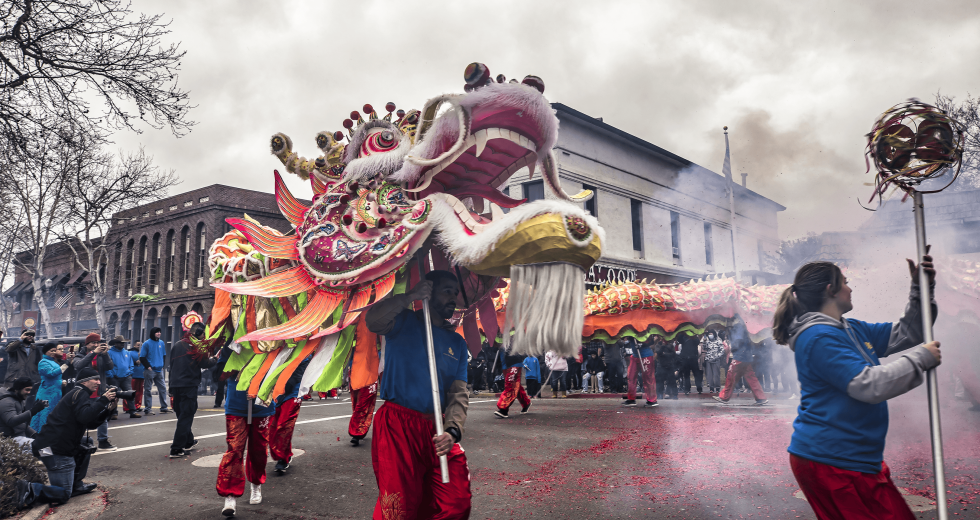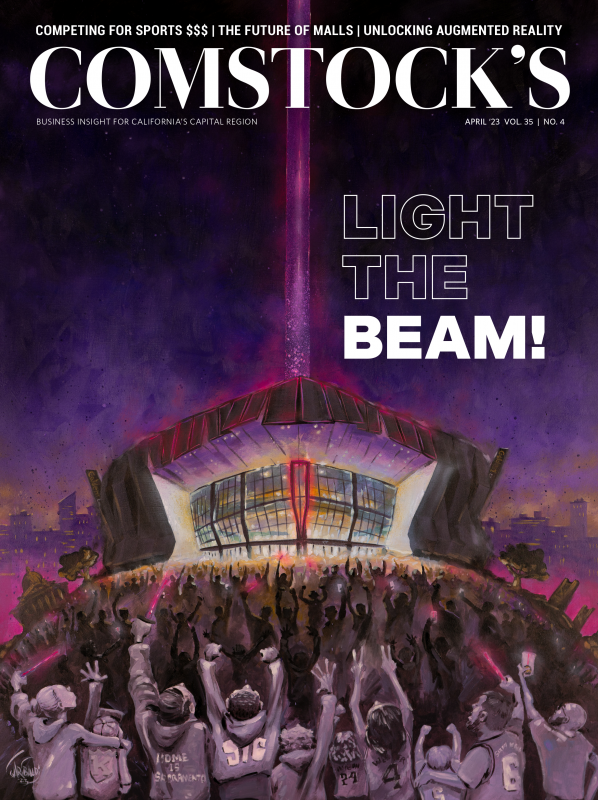Firecrackers explode, and the 175-foot golden dragon, Hong Wan Lung, emerges from the lingering smoke, weaving along the intersection of Marysville’s 1st and D streets to close out the 143rd annual Bok Kai Festival parade on Feb. 25. The dragon, in this Year of the Rabbit, is carried by members of nearby Beale Air Force Base, finishing in front of the Bok Kai Temple entrance in the city’s historic Chinatown district.
The Bok Kai Temple features a red central door and two wooden columns that greets entering visitors, along with Chinese inscriptions on both sides of the door carved into wood and painted gold. There is also a mural depicting scenes of Chinese culture. Inside are statues of seven deities, five on the main altar with Bok Eye in the center, and two on separate altars. Bok Eye, sometimes transliterated Bok I, is a water god said to protect Marysville from flooding and the main deity of the temple. In front of the main altar is a brass tablet bearing inscriptions of the deities, incense burners, divination sticks, oracle books and other ceremonial objects.
The temple and museum, one of the oldest Taoist places of worship in the country, is usually a quiet respite for visitors, open by appointment only. But during one weekend in the second month of the Chinese calendar — Feb. 24-26 this year — the serenity of the temple and adjoining Weaverville Joss House State Historic Park is replaced by bursts of firecrackers and thousands of visitors attending the Bok Kai Festival weekend, honoring Bok Eye.
The weekend, expanded to three days this year, is a community-wide point of pride for the Yuba County region. In addition to the parade, there are street dances, car shows and “Bomb Day,” which gets its name from the detonation of fireworks containing “good fortune” rings. At 143 years, the Bok Kai parade is known to be the oldest continuously held parade in California.
Visitors enter the Bok Kai Temple in Marysville during the Bok
Kai Festival on Feb. 25.
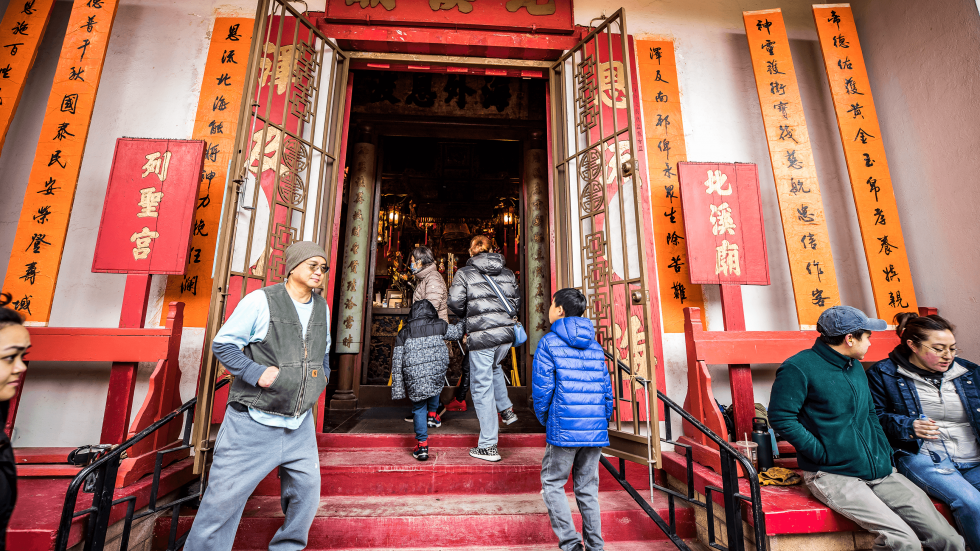
“With the Chinese community the festival is very important for what’s left of us; it’s a part of our heritage with the Marysville community,” says Jon Lim, a Marysville native and president of the Chinese community for the past six years. Lim notes that in the mid-1800s at the height of the Gold Rush, Yuba County was known as one of the more tolerant places towards Chinese immigrants, who made up about 30 percent of Marysville’s population at that time.
“As we grew together, the Bok Kai Festival and the parade just got more and more integrated into Marysville,” Lim says.
This year, during an off-and-on rainy festival, about 3,000 people visited the temple, Lim says. The community involvement Lim mentioned was evident throughout the weekend, including from those carrying the dragon.
Senior Airman Zoey Martins, 9th Health Care Operations Squadron medical logistics technician at Beale Air Force Base held the “pearl” during the dragon dance, a mystical object the dragon chases in the continuous pursuit of wisdom and enlightenment. A Beale AFB news release quoted Martins as saying she “loved being able to learn about and take part in a different culture’s celebrations.”
The temple is one of the oldest Taoist places of worship in the
country.
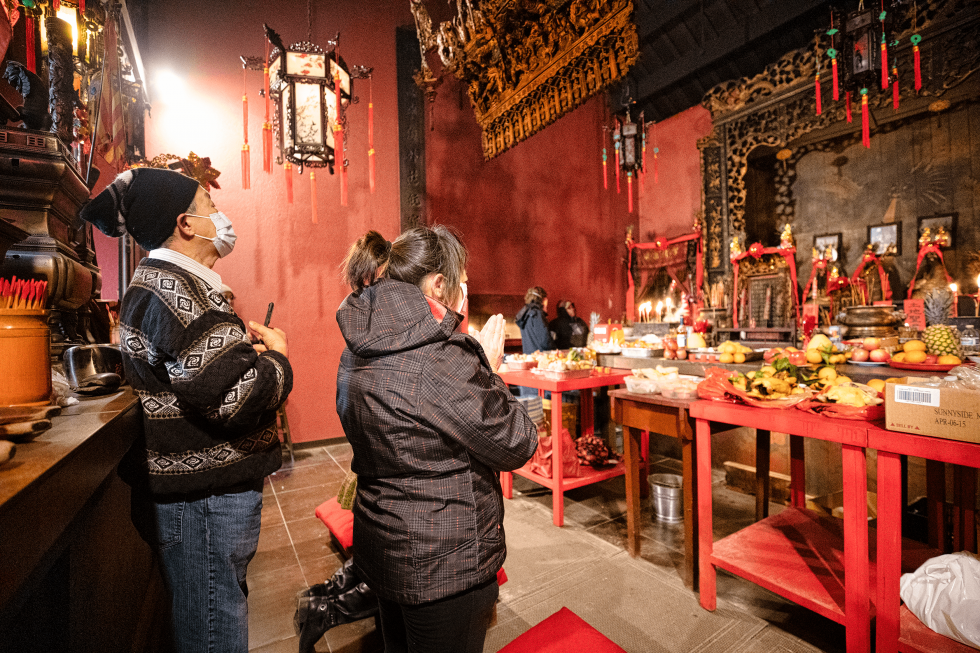
The current Bok Kai Temple, abutting the Yuba River levee and located behind the Silver Dollar Saloon, wasn’t the first in the area. The original was about two blocks away on the same street bordering the river, and was one of about five Chinese temples in Marysville, Lim says. As each one closed from fire and other factors, they incorporated into the current Bok Kai site dedicated in March 1880, where it has been in continuous operation ever since.
The temple was given a big publicity boost when Pixar’s 2022 movie “Turning Red,” which has been nominated for a Best Animated Feature Oscar, used Bok Kai Temple as the inspiration for the temple and altar depicted in the movie. The movie was shown twice during the recent Bok Kai festival weekend at the Buddhist Church of Marysville, highlighted with a Q&A session with the movie’s production designer Rona Liu.
“At the end, Pixar gives a shout out to Marysville, the Marysville Chinese community and Bok Kai,” Lim says regarding the temple’s appearance in the movie credits. “That’s huge.”
A California Historical Landmark which is also listed in the National Register of Historic Places, Bok Kai has been a Chinese community project since 1866, and has served as a meeting hall, court, school and place of worship. The adjoining museum and artifacts continue to be updated through a $100,000 restoration project that started in 2006, with funds coming from grants and individual donations, Lim says.
Though the excitement and the crowds of the annual Bok Kai Festival has ended for 2023, the site is open year-round by appointment for guided school groups, individuals and worshippers alike.
–
Stay up to date on business in the Capital Region: Subscribe to the Comstock’s newsletter today.
Recommended For You
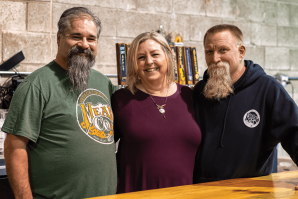
It’s All About the Mead
New Penn Valley establishment fills a niche
Nevada County Mead Company is one of the few places in the Capital Region that produces and serves mead, which the ancient Greeks called “nectar of the gods.”
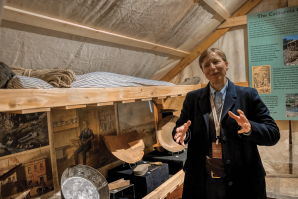
Museum Tells Unusual Stories of Almost Two Centuries in Benicia
Historic building used to house camels during the 1850s
The Benicia Historical Museum houses tens of thousands of artifacts related to multiple wars and the Gold Rush era, providing a place for visitors to learn something new and appreciate the story of California.
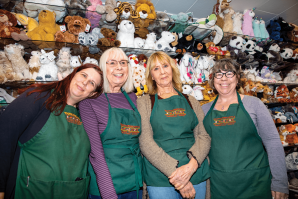
Grass Valley’s Foothill Mercantile Changes With the Seasons
Store has more than 23,000 toys and gifts on display
The store has delighted visitors through several generations while also featuring a wide selection of greeting cards, puzzles, candy, gifts and houseware items. Having an internet presence has helped them return to pre-pandemic sales numbers.

Olive and Wine Tasting Go Hand-in-Hand at Calivirgin in Lodi
New facility helps longtime olive oil business expand into wine
Lodi-based, family-owned Calivirgin has reshaped its
business. Part of California’s rich olive oil landscape for
almost two decades, its new facility allows the owners to
showcase award-winning products, introduce a new wine
line and host tastings.



